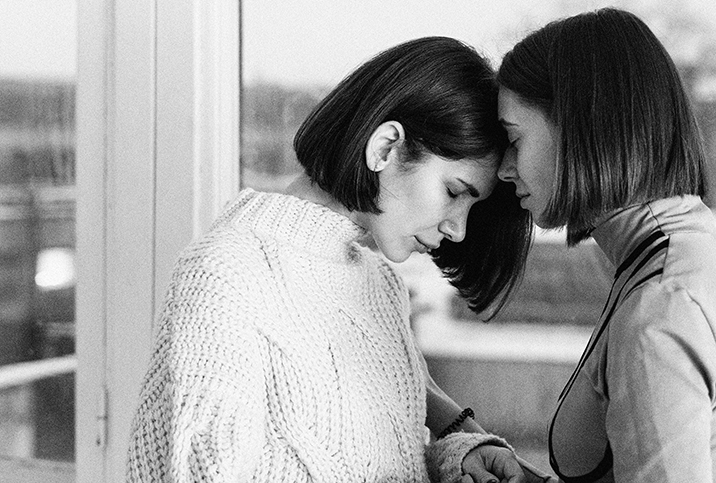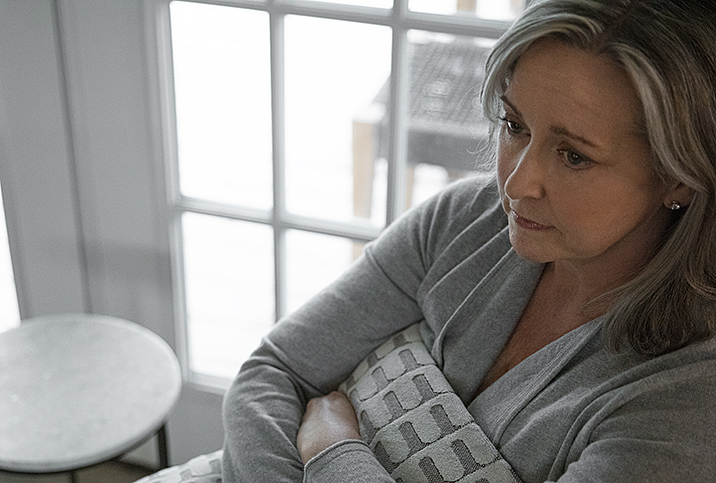How to Tell Family and Friends You Have Cancer

Receiving a diagnosis of cancer is always a shock. After you have taken some time for the initial processing—possibly with the help of a therapist—it's time to figure out who else needs to know.
Closest circle
Whether it is your partner, your best friend or your mom, there is probably someone you are close to who gets the honor of being with you from the start. They may already know that you have been worried, sick or just had an annual screening exam. This person may even be with you when you receive the diagnosis. It often isn't so much a matter of when or how you tell this confidant, because they are going to see the unfiltered version of you as you figure things out.
While this diagnosis is about you, your loved ones will have their own emotional response.
Pretty quickly you will need to decide who else is in the first tier of people you want to tell. Remember, this decision is yours to make. Your diagnosis can be as public or as private as you choose. Who gets told, when they are told and how much they are told are all up to you. Start by thinking of people closest to you. You will want a support network as you are adjusting to the news, going through follow-up testing and learning about your treatment options. This may include your closest friends, a friend who has already beaten cancer, your parents or anyone else you want on your team immediately.
It is with these people you will practice talking about what you are going through. You will learn what words you feel comfortable using and what parts of your story you want to share.
While this diagnosis is about you, your loved ones will have their own emotional response. Many strong feelings are brought up when we come face-to-face with the possibility of death. Talking to this inner circle will allow you plenty of opportunities to discuss your feelings and fears.
Jillian Barberie, TV host and breast cancer survivor, discusses her journey to recovery. Watch the full interview here.
Second tier
Next, you might decide to reach out to a slightly larger circle of people you are close to, such as friends, extended family, your pastor or co-workers.
Remember you are in control of who gets told and how much is shared. It is normal to not want to be as open with everyone as you were with those closest to you.
You may get questions you don't want to answer, such as your prognosis or what risk factors you had. Honor your boundaries by saying, "I'm not ready to talk about that" or "Thank you for your concern. I don't have all the answers yet."
Others
Who else you share your personal information with is up to you. You may let your support people know you are fine with them sharing the news with other people, or you may decide it's not anyone else's business.
It may be a good time to let a friend set up an account at a site such as Lotsa Helping Hands or CaringBridge to share updates. It is exhausting to share news one at a time with a few dozen people, so take advantage of the convenience these sites offer.
Special considerations
Special consideration will need to be used in when, how, or even if to tell your children and your boss. There are many factors to consider when you think about telling your children, but three very important ones are the ages of your kids, the seriousness of your diagnosis and the expected side effects from the treatment you will receive. It is unsettling for children to learn that a parent is sick. Consider talking to a social worker or therapist about the details of your family's situation to help prepare you for talking to your children. If your illness will affect your ability to work, you need to let your boss know. There are laws to protect your employment once your employer knows you are sick. You will need to talk to HR to find out company policies for sick leave and flex time. As you traverse unfamiliar terrain after a cancer diagnosis, you can retain some control in your life by owning your story, how it is told, and who gets to hear it.

















